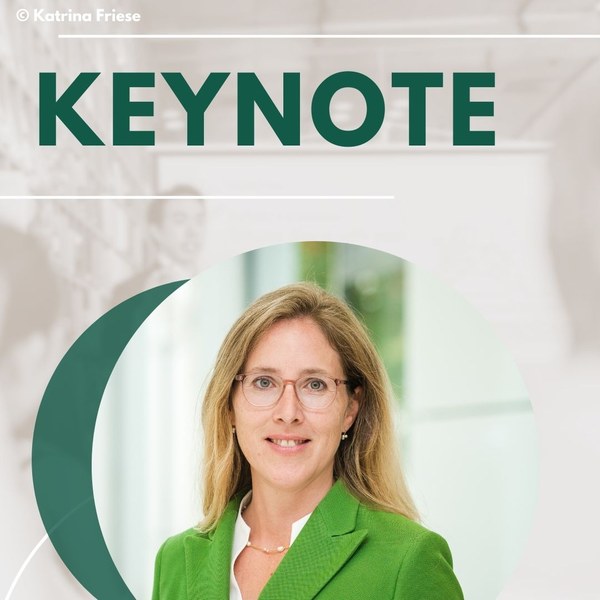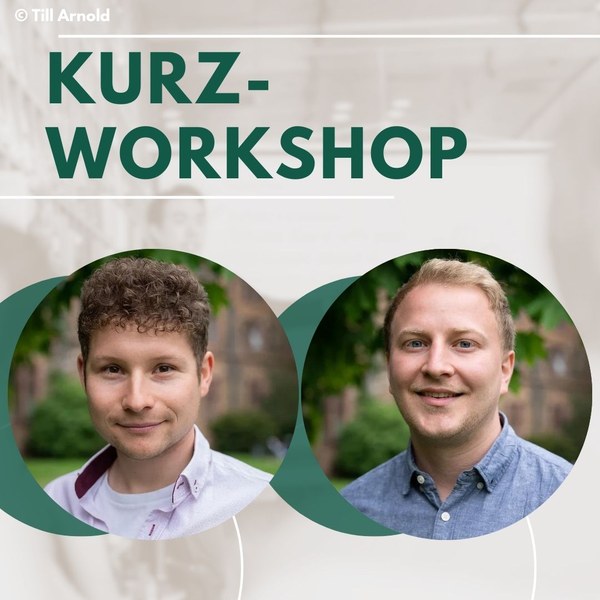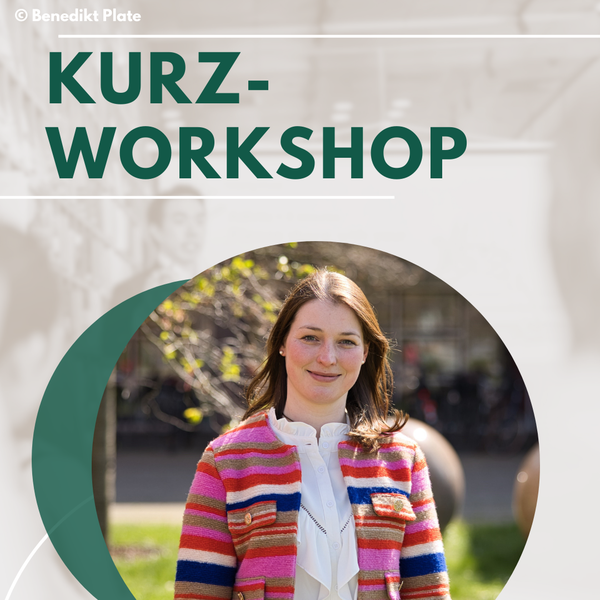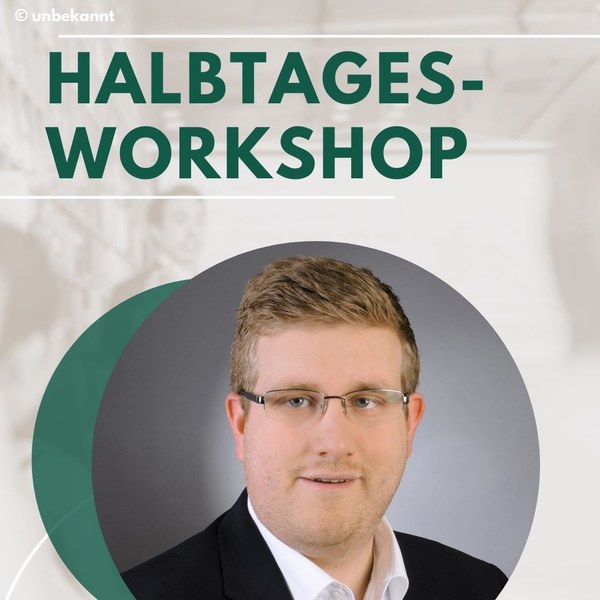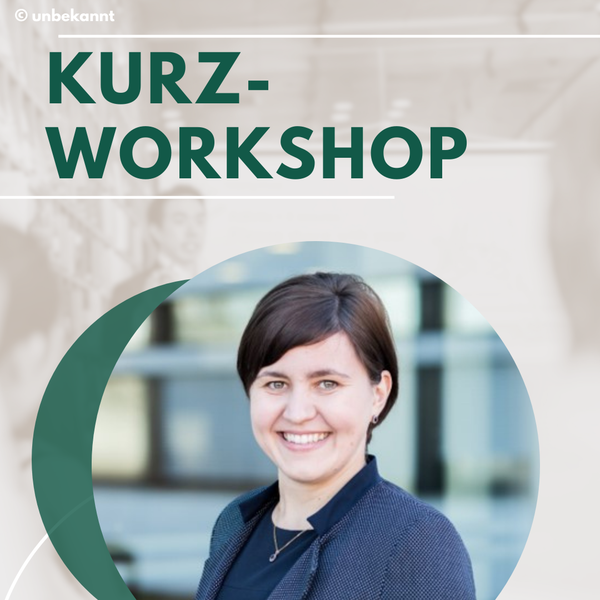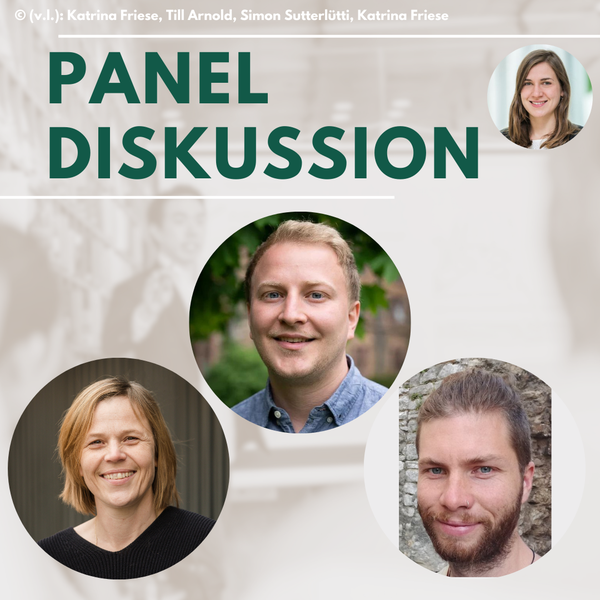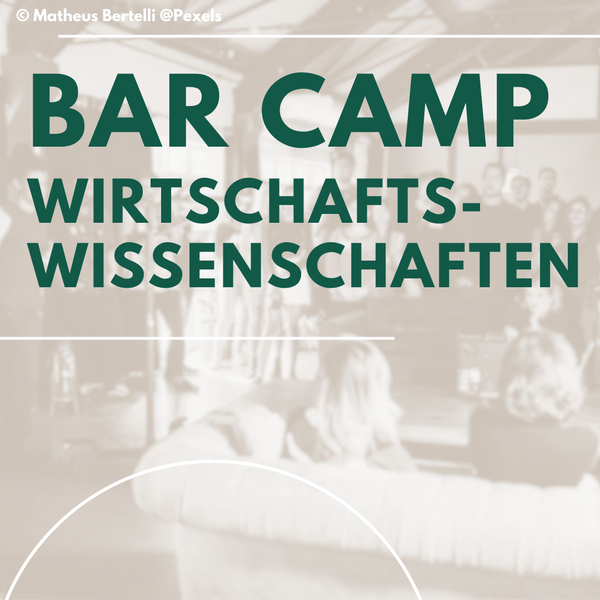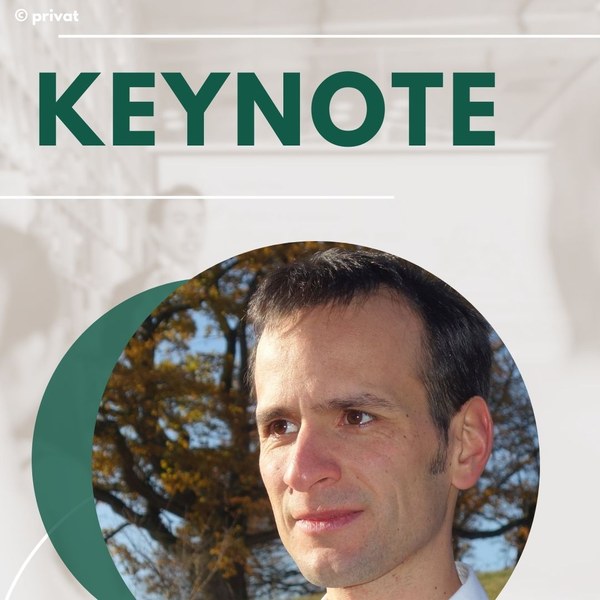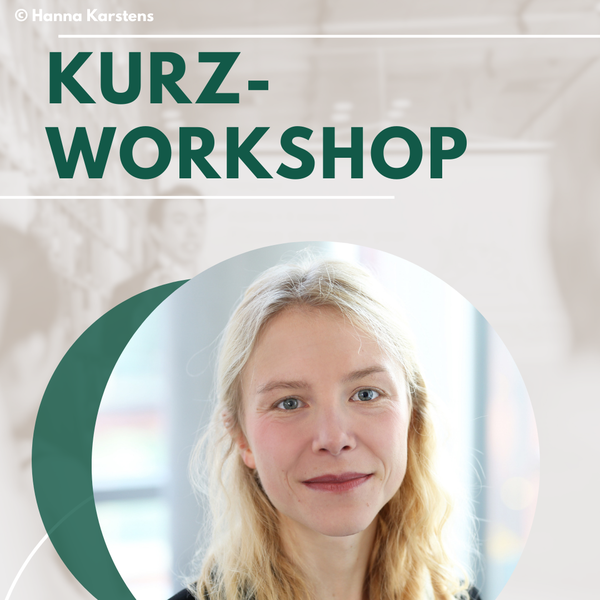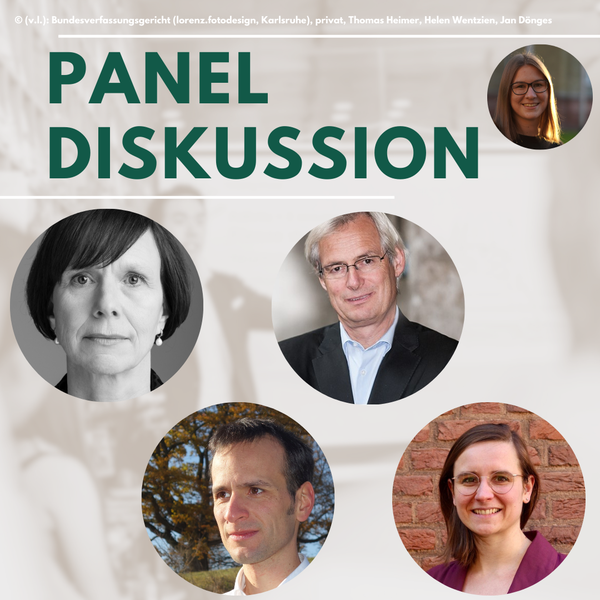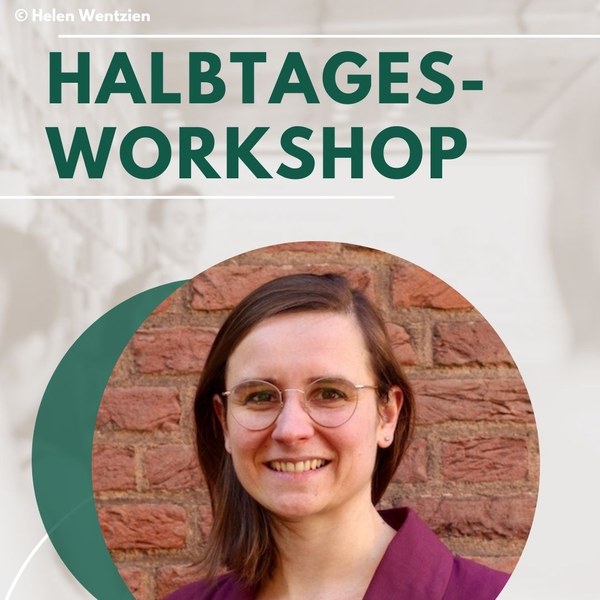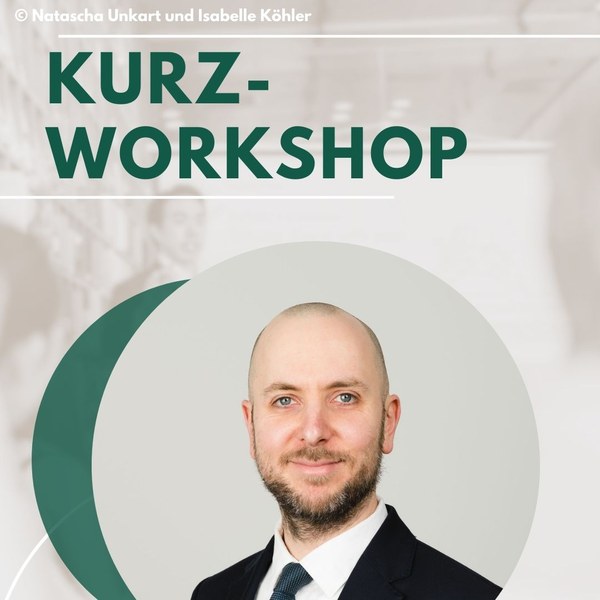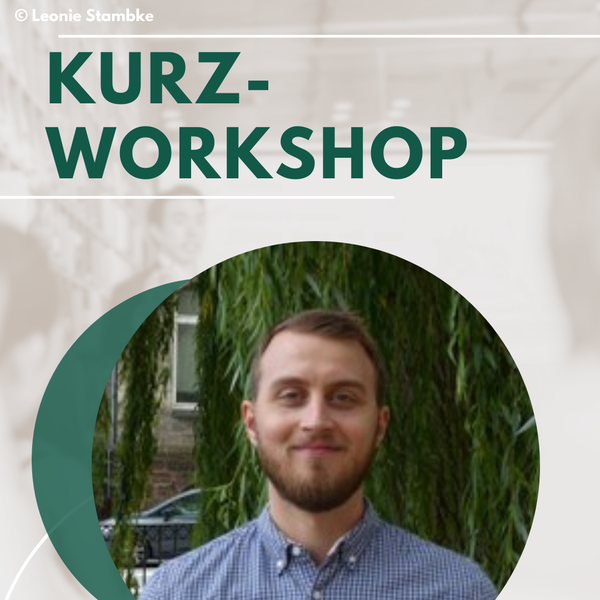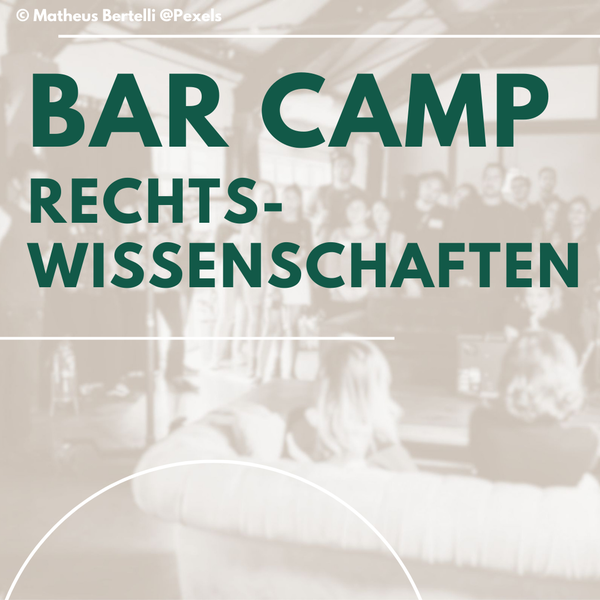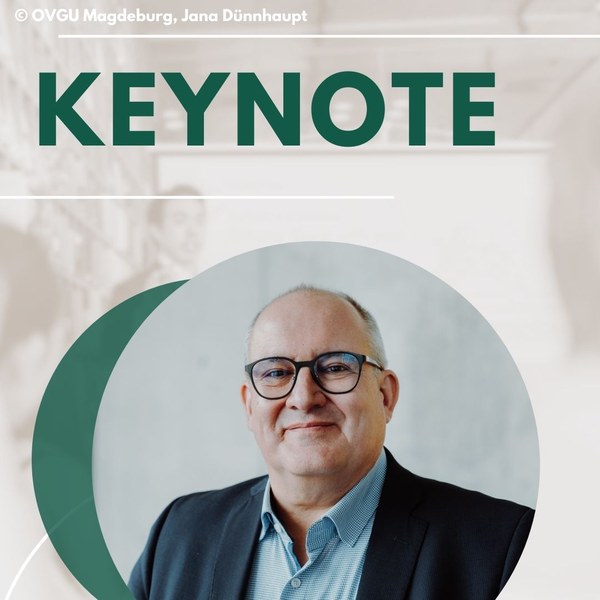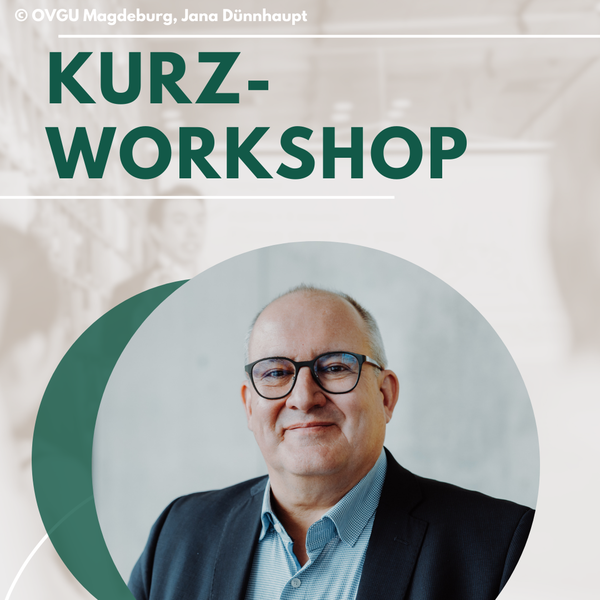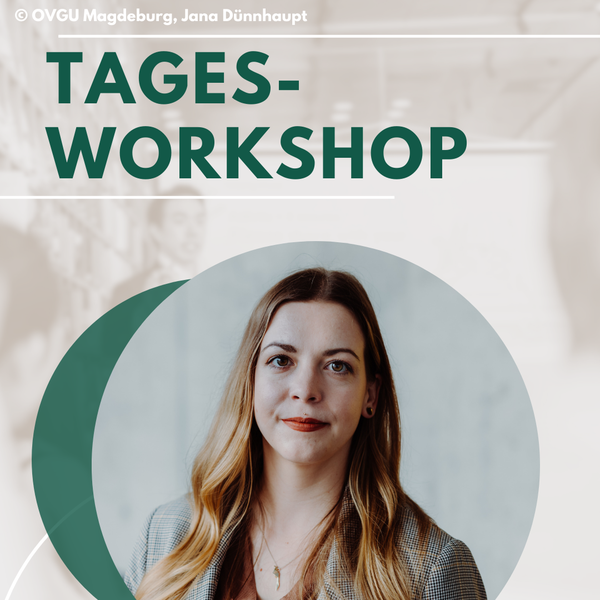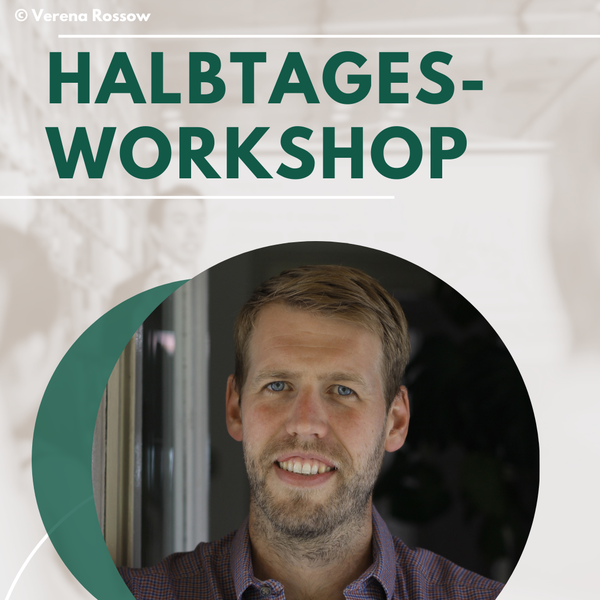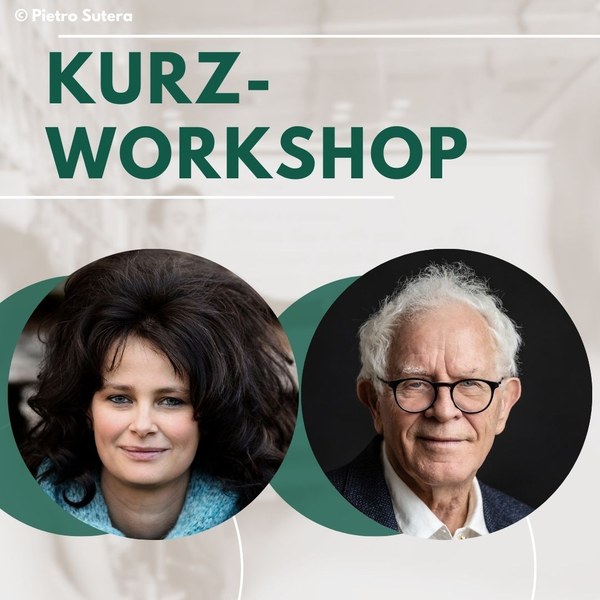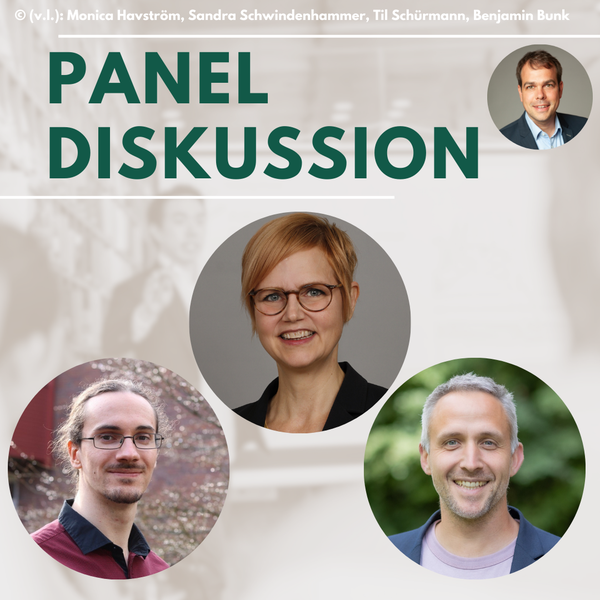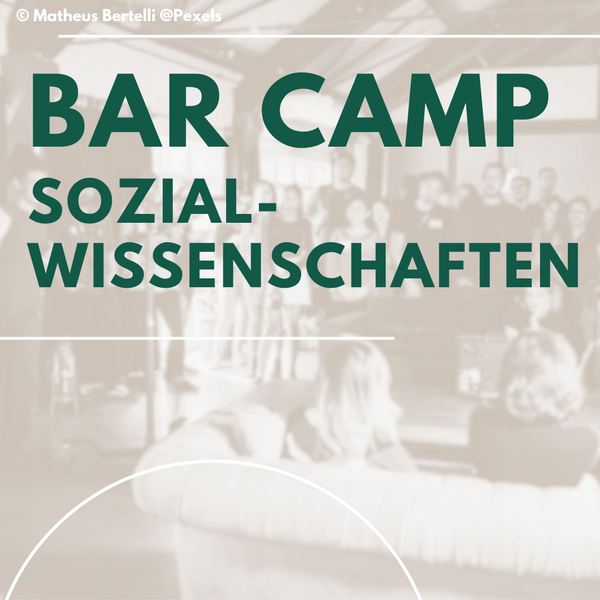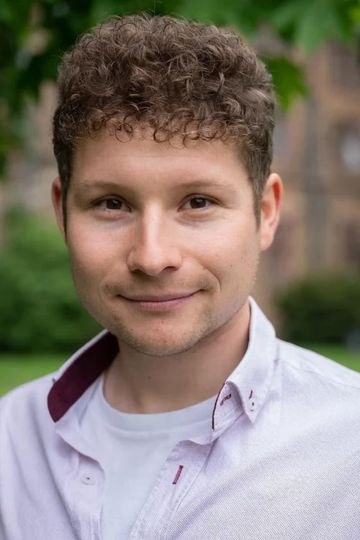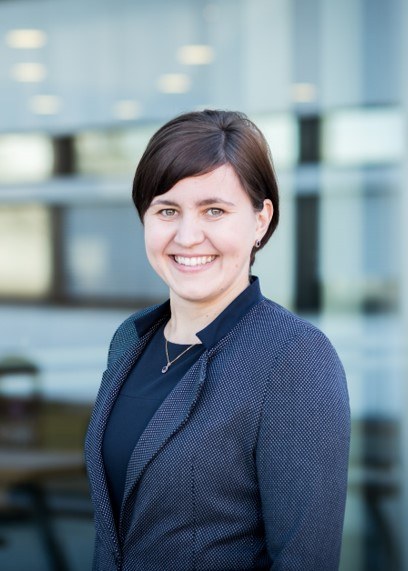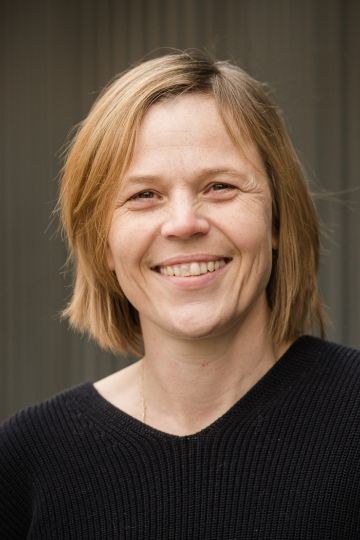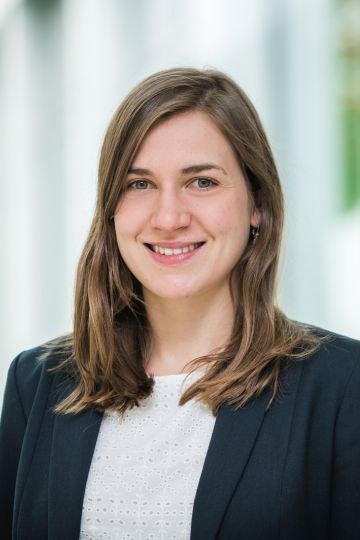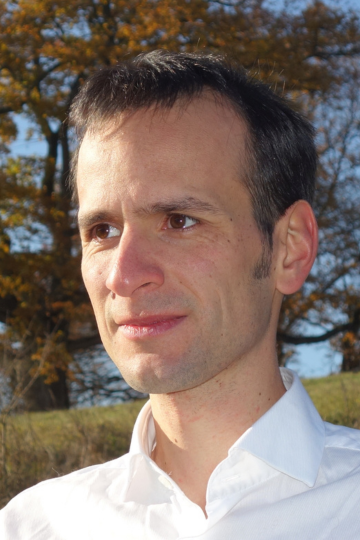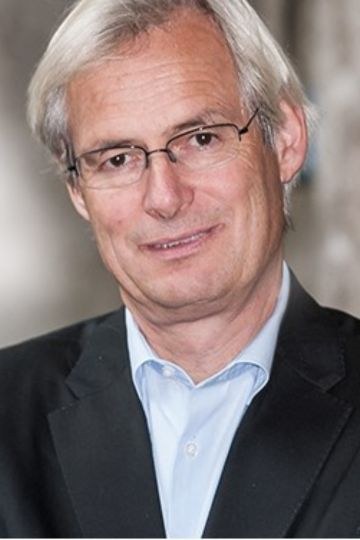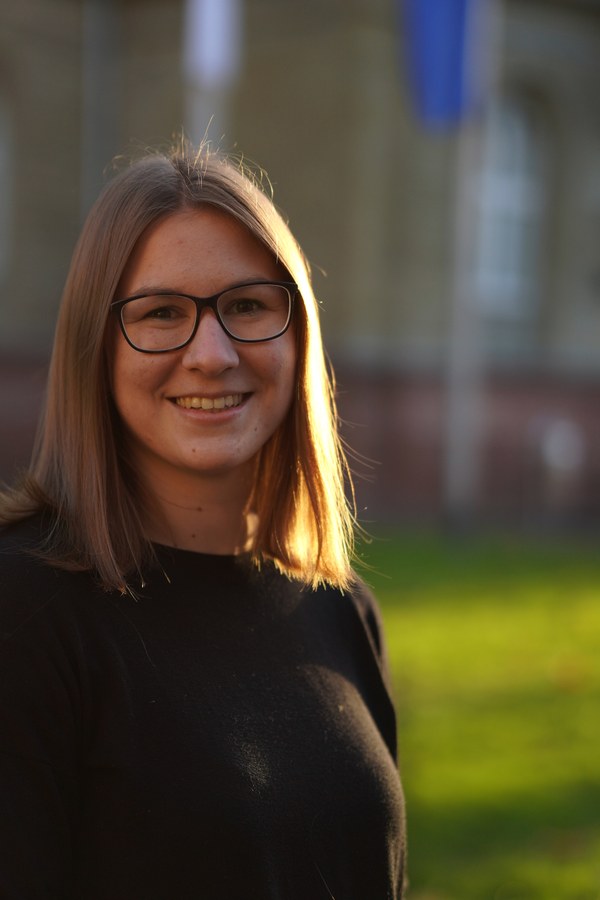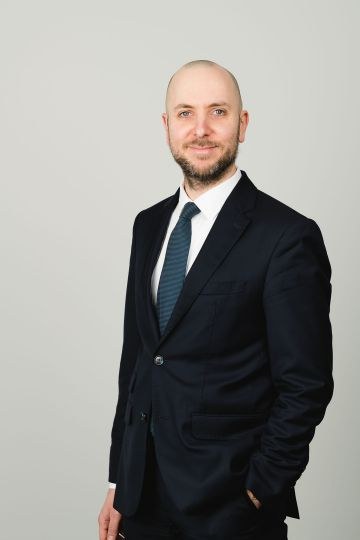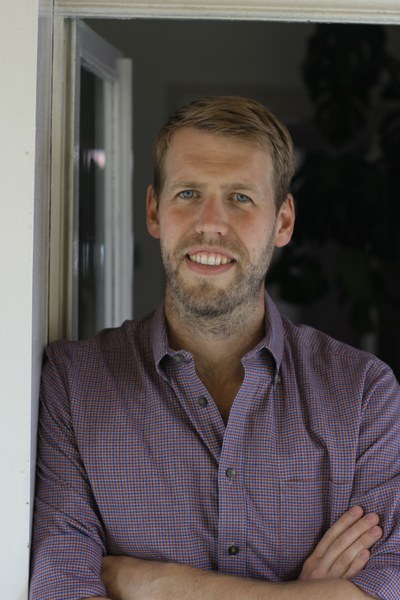GGS Sustainability Symposium
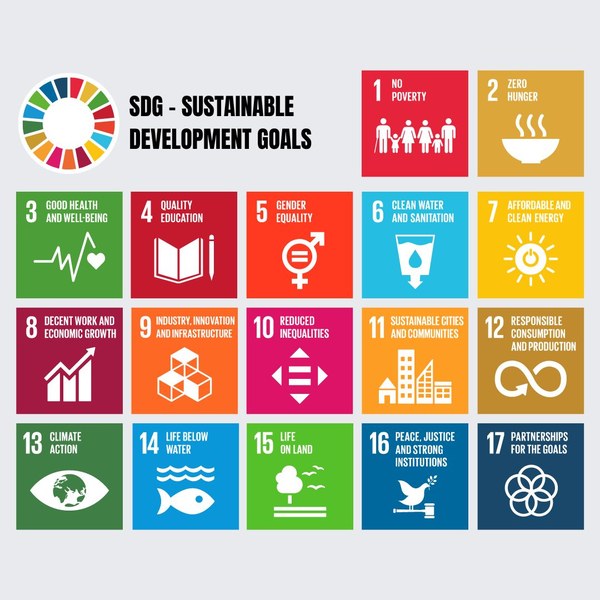
We carried out an interdisciplinary event about the field of sustainability research on
November 27 - December 1, 2023
: the
GGS Sustainability Symposium
primarily aimed at junior researchers and seeked to strengthen the dialogue between researchers at JLU on sustainability and thus the innovative capacity of the university.
By participating in the Sustainability Symposium, junior researchers...
- learned to integrate sustainability measures and ideas into their scientific practice,
- practiced a reflexive handling of different sustainability concepts in different scientific disciplines,
- identified sustainability as an interdisciplinary point of contact for research collaborations and subsequently implement it,
- acquired skills for future-oriented research (e.g. along the SDGs), and
- made their research practices more sustainable.
Thematically, the symposium will primarily focus on sustainability topics related to the social sciences, economics and law - the core areas of the GGS. The respective departments are already conducting research on the following topics, but we are open to further ideas and requests, and would like to expand this list:
- Sustainable Finance
- Sustainable Corporate Governance
- Sustainability Law
- Peace Research
- Inclusive Education, Diversity and Social Participation
- Environmental sociology
- Social and political science research on sustainable food and food security
In the context of the Symposium, we would like to pay special attention to the openness of different sustainability concepts for inter- and transdisciplinary investigations.
During the 4.5 days, you can expect keynote lectures, workshops, panel discussions, guided as well as free networking formats and expert talks. We at the GGS also see hosting the Sustainability Workshop as an opportunity to act sustainably as an organizing center. With this in mind, we will examine whether digital or hybrid delivery is possible for individual events at the workshop. In addition, e-learning modules will be made available in advance.
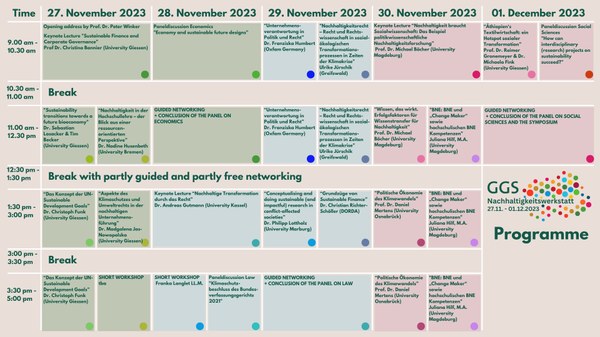
Paneldiscussions:
- Paneldiscussion Economics: "Economy and sustainable future designs" (the discussion will be held in English).
- Paneldiscussion Law: Panel Diskussion am Thementag Rechtswissenschaften "Fields of tension between the dimensions of sustainability in law" (the discussion will be held in German or English).
- Paneldiscussion Social Sciences: am Thementag Sozialwissenschaften "How can large interdisciplinary (research) projects on sustainability succeed?" (the discussion will be held in German or English).
Monday, November 27, 2023
|
|
9:00 AM – 10:30 AM,
Gustav-Krüger-Saal (Room 105)
Keynote language: German Sustainable Business Activities and Control Structures – What Works and Why? While the topic of sustainability was relatively unknown just a few years ago, we have now gained some experience with the implementation of sustainability transformation in our economy. Not all experiences were easy, unproblematic, or positive – rather, some trade-offs have emerged that we must now learn to deal with. What does this mean for practice and research? And how can both spheres learn from each other to find efficient solutions to the pressing issues of our time? |
|
|
11.00 – 12.30 Uhr
, Gustav-Krüger-Saal (Room 105)
Course language: English The workshop offers in-depth insights into the concepts and potentials of the bioeconomy in the context of sustainable regional development. The bioeconomy is a multidisciplinary approach that aims at the sustainable use of biological resources to develop products, processes and services that contribute to economic development while protecting the environment. This workshop will address the principles of the bioeconomy, the sustainable use of (biogenic) resources, innovations in the bioeconomy, policy frameworks, as well as socioeconomic impacts and societal acceptance. Using case studies and practical examples on the construction sector, participants will be encouraged to understand the interrelationships between the economy, the environment and society and they will develop strategies for a sustainable bioeconomy. The bioeconomy holds tremendous potential for transforming the construction sector, which generates substantial problems for the climate and the environment, for example through the use of environmentally harmful materials such as cement, steel and sand. Both simple biobased products (e.g., timber construction, natural insulation materials) and technological innovations (e.g., wood mycelium, bioplastics) are already available on the market. Nevertheless, the transition process is slower than necessary - but why is that? In the workshop we will jointly search for answers. |
|
|
11:00 AM – 12:30 PM
, Senatssaal
Workshop language: German This seminar is a warm invitation to educators and researchers in economics, as well as those from other disciplines who aim to incorporate Education for Sustainable Development and sustainability into their teaching. In this workshop, participants will engage with the diversity of the sustainability concept and reflect on how it can be integrated into their teaching materials. Specifically, participants will become acquainted with selected competence lists for designing sustainable development, gain an overview of methodological and didactic competencies related to sustainability, and take a glimpse into their own teaching and learning practices. Through a combination of presentations and group work, as well as systemic visualizations, participants will create new perspectives on sustainability-focused teaching. |
|
|
1:30 PM – 5:00 PM
, Senatssaal
Workshop langauge: German The aim of this workshop is to introduce the fundamental concepts of the United Nations Sustainable Development Goals (SDGs). We will start with a brief historical overview of the SDGs and their connection to the Millennium Development Goals. Following that, we will discuss how sustainable development can be measured at the country level using indicators. Special attention will be given to the technical steps involved in constructing these indices, as well as the various types of data required and their availability. Additionally, we will examine the latest research findings in this field to gain a comprehensive understanding of current developments and challenges. |
|
|
1:30 PM – 3:00 PM
, Gustav-Krüger-Saal (room 105)
Workshop language: German The aim of this workshop is to introduce the fundamental elements of sustainable corporate management, with special consideration for climate protection and environmental law. This will include a discussion of voluntary commitments made by businesses in the fields of climate and environmental protection, as well as an examination of relevant legal precedents. The workshop will foster a shared understanding of the role of law in corporate sustainability reporting. It will begin by presenting the legal foundations (both national and European), followed by the discussion of practical examples. |
Tuesday, November 28, 2023
|
|
9:00 AM - 10:30 AM,
Gustav-Krüger-Saal (Room 105)
Discussion language: English Fostering a sustainable transformation requires us to rethink the economy and society. The way in which companies produce goods and services, but also the way people ultimately demand and consume those goods and services, is at the heart of this transformation. It is therefore crucial to ask the following questions: How can companies and consumers be agents of change for a sustainable future? Which factors and barriers should be taken into account to achieve a successful transformation? Is a sustainable transformation even possible in a capitalist world, or does it require a change of system rather than changes within the system? Given our globalized economy, we will also seek to discuss how to achieve more sustainability on a global scale, while considering the complex challenges faced by both industrialized and developing countries - towards a future in which the economy and the environment are not at odds with each other. |
|
|
11:00 AM - 12:30 PM,
Gustav-Krüger-Saal (Room 105)
Host language: German In this session, participants will discuss their own topics related to sustainability with a focus on Business and Economics in small groups according to the Bar Camp method. Guided by the GGS team, the usual steps of the method will be carried out: The participants will 1. collect topics in the plenary, 2. prioritise topics to be discussed in the groups, 3. exchange in a group (approx. 30 min.) on the selected topics and fix the results on the pin board, 4. present the results in the plenary. The aim of the Bar Camp is to get to know other participants through the exchange in the group, to gain new insights and to generate ideas together - perhaps even for joint projects in the future. |
|
|
1:30 PM - 3:00 PM,
Gustav-Krüger-Saal (Room 105)
Keynote language: German The concept of sustainability has also made its way into the field of law. Law is generally viewed as a vital instrument in the fight against environmental destruction and, therefore, as a tool for the transformation towards a sustainable society. Significant attention has been given to the climate decision of the Federal Constitutional Court in 2021, which, through the concept of "intertemporal freedom protection," demands the consideration of the interests of future generations, essentially adopting the concept of sustainability. However, it is often argued that the law does not adequately address the current challenges of planetary proportions and that addressing the environmental crisis requires a fundamentally new legal framework. Proposals for this include concepts like "Earth System Law" or "Rights of Nature." Starting from the current state of the sustainability discourse in law, the presentation aims to shed light on the current challenges posed to the legal system and various concepts proposed to address them. The key question guiding this discussion is the extent to which these concepts enable a just socio-ecological transformation. |
|
|
3:30 PM - 5:00 PM,
Seminar room 315
Workshop language: English What is the economic necessity and function of law, specifically criminal law? To what extent do economic considerations and principles, as well as societal interests, play a role in its design? What does a sustainable legal regulation of (economic) environmental activity look like? The workshop "The Economic Analysis of Law and the (Criminal) Regulation of Economic Environmental Activity" combines law and economics, as well as theory and practice. In an opening session, the economic analysis of law, especially in the context of criminal law, will be presented, highlighting its main features, areas of application, and points of criticism, with a focus on the regulation of economic environmental activity. In an interactive workshop format, the topics will be further explored, discussed, and developed through case studies. Finally, a practical input on the current regulatory status and development trends will conclude the session. |
|
|
3:30 PM - 5:00 PM,
Gustav-Krüger-Saal (Room 105)
Discussion Language: German Am 24. März 2021 erklärte das Bundesverfassungsgericht Inhalte des Klimaschutzgesetzes des Bundes (KSG) für unvereinbar mit der Verfassung. Man stellte fest, dass die Regelungen des Klimaschutzgesetzes, welche die Reduktion von Treibhausgasemissionen lediglich bis ins Jahr 2030 normierten, zwar weder gegen aus Art.2 II und Art. 14 GG abgeleitete Schutzpflichten noch gegen das Klimaschutzgebot aus Art. 20a GG verstößt. Jedoch entfaltete die in § 4 KSG festgelegte Emissionsmenge eine „eingriffsähnliche Vorwirkung“ in intertemporale Freiheitsrechte, da sie bei einem Verbrauch des für Deutschland bestehenden Restbudgets, dazu führt, dass zukünftige Generationen aufgrund der hohen Last zur Emissionsreduktion in ihrer Freiheit beschränkt werden. Daher müssen die Restemissionsmengen angemessen über die Zeit verteilt werden, damit nicht eine Generation die Freiheitseinbußen allein zu tragen hat. Daraus folgt, dass auch die Reduktionserfordernisse für die Jahre nach 2030 festgelegt werden müssen. Insoweit wurde das Klimaschutzgesetz für verfassungswidrig erklärt. Dieses Urteil war 2021 vor allem auch symbolisch eine Errungenschaft der Klimabewegungen. Aber was hat das Urteil wirklich bewirkt? Hat es das Bundes-Klimaschutzgesetz (KDG) verändert oder ist es bei einem symbolischen Akt geblieben? Wie lässt sich der Beschluss von 2021 aus heutiger Perspektive rechtlich einordnen und inwiefern beeinflusst es Diskurse über Nachhaltigkeit und Nachhaltigkeitsrecht? Diese und ähnliche Fragen beleuchten die Expert:innen des Panels in der Diskussion. |
Wednesday, November 29, 2023
|
|
9:00 AM - 12:30 PM,
Gustav-Krüger-Saal (Room 105)
Workshop language: German This workshop is aimed at legal scholars and representatives from other disciplines who research law in the context of sustainability or wish to consider aspects of sustainability law in their research. The workshop's goal is to provide comprehensive knowledge about what "sustainability law" already exists and how sustainability, socio-ecological transformations, and addressing the climate crisis are already addressed in law and discussed in legal studies. This will enable participants to categorize their own research within the framework of sustainability law and identify relevant discourse strands in sustainability law for their own research. It also provides a space for discussing challenges encountered in sustainability research, such as how to incorporate research results effectively, avoid getting lost in general debates, and identify suitable communities for networking and conference participation. |
|
|
9:00 AM - 12:30 PM,
Senatssaal
Workshop language: German This event addresses the topic of corporate responsibility and explores legal and political aspects. Using case studies from civil society organizations like Oxfam, the workshop will initially highlight the devastating local working, environmental, and climate conditions. It will then delve into the global legal gap concerning corporate liability for human rights violations and environmental damage within supply chains. Specific cases, such as the factory fire at the kik supplier in Pakistan (Ali Enterprises), the collapse of the Rana Plaza textile factory in Bangladesh with over 1,000 fatalities, and lawsuits against Shell for oil pollution in the Niger Delta, will be examined in depth. Legal challenges and solutions will be discussed, drawing upon various existing national laws like the German and EU "Supply Chain Act." |
|
|
1:30 PM - 3:00 PM,
Online
Workshop language: German ESG (Environmental, Social, and Governance) and sustainability topics present new challenges for companies, but also numerous opportunities, especially for those involved in the sustainable capital market. In this workshop, "Fundamentals of Sustainable Finance," you will gain an overview of current regulations and learn how to implement them in practice. You will discover the compliance requirements, explore current market trends, and gain in-depth insights into selected areas. Topics Covered:
|
|
|
1:30 PM - 3:00 PM,
Senatssaal
Workshop language: English The social sciences, along with their intersections with legal studies, have increasingly engaged in discussions about ethics, safety considerations, and the societal impact of research. This workshop aims to explore the implications of these discussions for the theoretical and practical aspects of sustainable research. It begins with insights from research in peace and conflict studies and then delves into what it means to conduct sustainable research across disciplines. Participants will gain insights into relevant approaches, such as feminist, collaborative, and action research, as well as recent developments in the concept of social impact, which will be critically examined and discussed in the context of participants' own research endeavors. |
|
|
3:30 PM - 5:00 PM,
Gustav-Krüger-Saal (Room 105)
Host language: German In this session, participants will discuss their own topics related to sustainability with a focus on Law in small groups according to the Bar Camp method. Guided by the GGS team, the usual steps of the method will be carried out: The participants will 1. collect topics in the plenary, 2. prioritise topics to be discussed in the groups, 3. exchange in a group (approx. 30 min.) on the selected topics and fix the results on the pin board, 4. present the results in the plenary. The aim of the Bar Camp is to get to know other participants through the exchange in the group, to gain new insights and to generate ideas together - perhaps even for joint projects in the future. |
Thursday, November 30, 2023
|
|
9:00 AM - 12:30 PM
, Gustav-Krüger-Saal (Room 105)
Keynote language: English
This presentation focuses on why social sciences are indispensable for sustainability research and achieving societal sustainability goals. Using political science and their own research as examples, the keynote will highlight key questions, important findings, and potential challenges in social science sustainability research that demands interdisciplinary and transdisciplinary approaches. The aim is to emphasize that the transformation toward sustainability is an open-ended political process, and political science insights are essential for a better understanding of it. The presentation will also address potential challenges in social and political sustainability research by discussing how much politics science can accommodate and to what extent sustainability researchers need to be activists. The position is taken that scientists must always be transparent about their roles and should not become activists in their capacity as scientists, even for self-preservation.
|
|
|
11:00 AM - 12:30 PM
, Gustav-Krüger-Saal (Room 105)
Workshop language: German How many of us in academia have experienced this? Your research produces important results that are relevant to society and politics, but often, they go unnoticed, or previous strategies to communicate them have not been very successful. In this workshop, participants will first learn about factors for successful knowledge transfer from sustainability research to practice using concrete examples, based on the established Research-Integration-Utilization (RIU) model in sustainability research.
Subsequently, participants will work together to develop approaches to optimize their own knowledge transfer strategies. Participants are encouraged to actively contribute their own examples and experiences and discuss strengths, weaknesses, and potential improvements based on the RIU model and its checklists.
|
|
|
11:00 AM - 5:00 PM
, Senatssaal
Workshop language: German In this workshop, the initial focus will be on developing and discussing a shared understanding of higher education for sustainable development (ESD). Subsequently, the workshop will explore a competence development model for students as "Change Agents." The central question here is how university education can equip students with not only the necessary academic skills and fundamental subject knowledge but also specific skills for shaping a sustainable and just environment and society.
As a methodological good practice example for higher education, the workshop will examine the concept of Service Learning, where theoretical learning and experiential learning through engagement are combined and reflected upon. Using this concept, the workshop will develop fictitious Service Learning tasks based on real practice partner institutions in the Central Hessen region. These tasks can be integrated into the university seminars at JLU.
|
|
|
1:30 PM - 5:00 PM
, Gustav-Krüger-Saal (Room 105)
Workshop language: German The decisions needed to drive the transition to a climate-neutral economy challenge established modes of production and lifestyles at their core. Consequently, climate policy regulation, both at the global and national levels, is not solely a coordination problem. Instead, it gives rise to numerous new distribution conflicts in which conceptions of justice, interests in maintaining the status quo, and the need for rapid and profound change collide. In this workshop, international and national distribution conflicts will be examined. Participants will discuss ideas of a "just transition" and engage in a small role-play on European climate policy. |
Friday, December 1st, 2023
|
|
9:00 AM - 10:30 AM
, Senatssaal
Workshop language: German The Ethiopian government has set a goal to move beyond the country's agrarian-based economy and transform into a modern industrial nation in the near future. This transformation is expected to create hundreds of thousands of jobs for the young and growing population. A key role in this industrialization process is played by the textile and apparel sector. The Ethiopian government has successfully attracted numerous international investors who have established themselves in Ethiopia's modern industrial parks in recent years. However, this relatively young sector faces significant challenges, including high labor turnover, which threatens the economic success of companies. Over a three-year research project funded by the German Federal Ministry for Economic Cooperation and Development (BMZ), Reimer Gronemeyer and Michaela Fink have delved into the causes of the high labor turnover. The project has produced numerous interviews with textile workers, former textile workers, executives, communities, representatives of interest groups, and development cooperation partners, among others. The research findings shed light on the working conditions in Ethiopia's textile industry, with a focus on the perspectives of the predominantly female workforce. The discussion of the research results leads to the important and complex question of how the German federal government can support the creation of fair and sustainable jobs in countries like Ethiopia. |
|
|
9:00 AM - 10:30 AM
, Gustav-Krüger-Saal (Room 105)
Discussion language: German The sustainability turn is an undertaking that affects all facets of society, as well as transformation can only be achieved, if a variety of actors and perspectives are considered successfully. It is therefore hardly surprising that, research in sustainability should be interdisciplinary. But that sounds easier as it is: Distinct perspectives, unique findings and disciplinary discourses are (or where) constitutive for science to move forward and deepen knowledge. It is (or was) crucial for young scientists to build their unique profile in their respective communities. Still, coming from “Social Sciences, Business, Economics and Law”, the scientific sustainability discourse seems to be dominated by perspectives from the natural sciences. Thus, we want to discuss at the GGS „How can interdisciplinary (research) projects on sustainability succeed?” By looking into the debate around how interdisciplinary (research) projects on sustainability can succeed, we can therefore address several connected questions for our future. What are the principles that shall guide future societies? Which understanding of science do we need? Perhaps, successful interdisciplinary research needs to find new ways of working together, new ways to establish expertise, to recognise it, and to communicate it. |
|
|
11:00 AM - 12:30 PM,
Gustav-Krüger-Saal (Room 105)
Host language: German In this session, participants will discuss their own topics related to sustainability with a focus on Social Sciences in small groups according to the Bar Camp method. Guided by the GGS team, the usual steps of the method will be carried out: The participants will 1. collect topics in the plenary, 2. prioritise topics to be discussed in the groups, 3. exchange in a group (approx. 30 min.) on the selected topics and fix the results on the pin board, 4. present the results in the plenary. The aim of the Bar Camp is to get to know other participants through the exchange in the group, to gain new insights and to generate ideas together - perhaps even for joint projects in the future. |
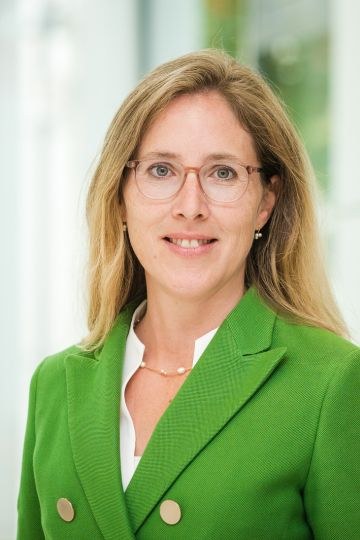
|
Prof. Dr. Christina E. Bannier (Justus Liebig University Gießen) Christina Bannier has held the chair of Banking and Finance at Justus Liebig University Giessen since 2016. Before that she held professorships at the Gutenberg University Mainz, Frankfurt School of Finance & Management, as well as the Leibniz University Hannover. In addition to her academic work, Christina Bannier is a member in several supervisory boards, as well as industry-related working and expert groups on topics of sustainability and governance. She is co-editor of the ESGZ, the Journal of Business Economics, as well as the Global Finance Journal, and she is head of the BMBF-funded cooperative project “SATISFY - Szenarioanalyse als ein Werkzeug für Investor:innen, Unternehmen und Regulatoren auf dem Weg hin zu Klimaneutralität”. The focus areas of her work and research are sustainable finance, corporate governance and compliance, as well as data analytics. |
|
|
Tim Becker, M.Sc. (Justus Liebig University Gießen)
Tim Becker, M.Sc., works as a research assistant at JLU’s institute of geography in the department of economic geography and in the institute’s TRABBI project. His work centres around green technology and ecological innovation, innovation geography, as well as sustainability transition and bio economy with a focus on China.
|
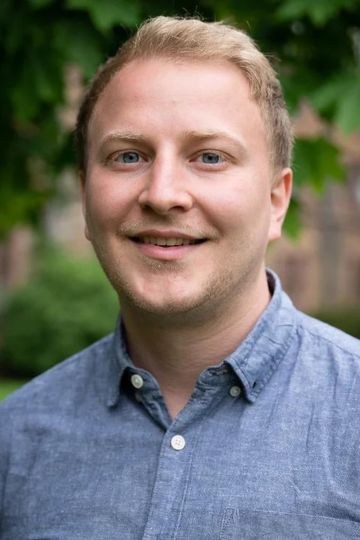
|
Dr. Sebastian Losacker (Justus Liebig University Gießen)
Dr Sebastian Losacker is a group leader at JLU’s institute of geography in the department of economic geography and in the institute’s TRABBI project. His work centres around green technology and ecological innovation, innovation geography, as well as sustainability transition and bio economy.
|
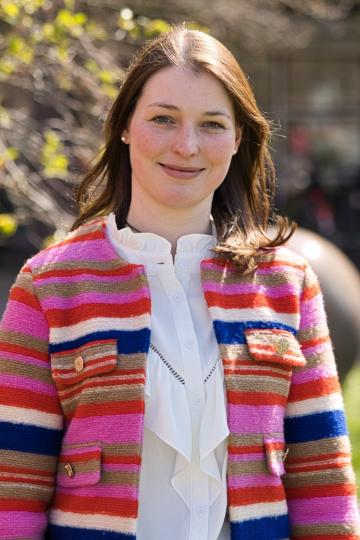
|
Dr. Nadine Husenbeth (University of Bremen ) Dr Nadine Husenbeth is an economist, competitive athlete, and researcher at the University of Bremen at the chair of Professor Dr Georg Müller-Christ. A major focal area of her work lies in the development and testing of innovative teaching scenarios. In her PhD thesis “Der Bremer Geist -Eine systemische Analyse des Narrativs für das Bremer Gründungssystem“ Dr Nadine Husenbeth demonstrated how to successfully conduct a research process based on explorative stances and constellations.
|
|
|
Dr. Magdalena Jas-Nowopolska (Justus Liebig University Gießen) Magdalena Jaś-Nowopolska is a research associate (postdoc) at the Chair of Public Law and International Law at Justus Liebig University in Giessen. She is a partner in a project funded by the German-Polish Science Foundation called "Economics, Finance and Sustainable Development". Her research interests include economic law, energy law, constitutional law, and European law. |
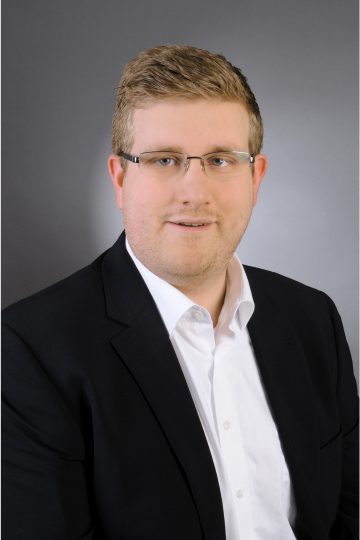
|
Dr. Christoph Funk (Justus Liebig University Gießen) Dr Christoph Funk has worked at JLU Giessen’s Center for International Development and Environmental Research (ZEU) since 2020. He studied macroeconomics in Giessen, at Karlstad University, and at the University of Wisconsin-Milwaukee with a focus on maths and econometry. Following his studies, he did a binational PhD at JLU Giessen and Macquarie University (AUS). His research interests include monitoring of the UN sustainable development goals, effects of climate change on micro- and macrolevels, as well as on text-mining based analysis in the application area of economy.
|
|
|
Prof. Dr. Wencke Gwozdz (Justus Liebig University Gießen) Since 2018, Wencke Gwozdz has held JLU Giessen’s Chair of Consumer Research with a focus on sustainable consumption, health behaviour, and consumer policy, especially in the area of food. She did her PhD in economics at the University of Hohenheim and afterwards spent ten years the Copenhagen Business School in Denmark. Her research revolves around understanding how consumer behaviour affects individuals, the environment, and society, as well as on finding ways to foster changes in consumer behaviour. She specialises in quantitative methods like surveys, diary studies and field experiments, and thanks to her contributions to a variety of European research projects she can draw on a strong interdisciplinary network . |
|
|
Alix Auzepy, M.Sc. (Justus Liebig University Gießen) Alix Auzepy is a research assistant and PhD student at the Chair of Banking & Finance (BWL6). Her research interests include topics such as sustainable finance, ESG, climate risks, and investor behavior. She holds a Master degree (M.Sc.) in finance from Bocconi University and a Master degree of public policy (MPP) from the Hertie School of Governance. Prior to her PhD, she worked at KfW IPEX-Bank, where her positions included portfolio manager and most recently strategy & sustainability officer.
|
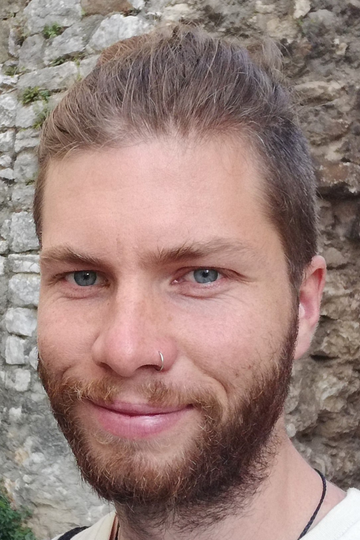
|
Simon Sutterlütti
Simon Sutterlütti has been researching post-capitalist alternatives, commons and social transformation for 12 years. He is co-author of the book "Aufheben Kapitalismus" (2018) and works in the project "Gesellschaft nach dem Geld".
|
|
|
Dr Andreas Gutmann (Field of Expertise: Just Transitions, Kassel Institute for Sustainability, and Institute for Social Sciences, University of Kassel) Studied law in Freiburg and completed his doctoral research at the University of Bremen with the thesis titled "Hybrid Legal Subjectivity, the Rights of 'Nature' or 'Pacha Mama' in the Ecuadorian Constitution of 2008." Following his legal clerkship at the Kammergericht Berlin, with placements at institutions such as the European Center for Constitutional and Human Rights (ECCHR) and the Federal Constitutional Court, he currently works as a postdoctoral researcher at the Kassel Institute for Sustainability at the University of Kassel. |
|
|
Professor Dr Gabriele Britz (Chair of Public Law and European Law, Justus-Liebig University Giessen, former Judge of the Federal Constitutional Court)
Gabriele Britz studied law at Goethe University in Frankfurt am Main and obtained her doctorate in 1993 after passing the first state examination in law. Her dissertation focused on "The Significance of European Community Law for Local Energy Supply with Particular Consideration of Municipal Design Options." In the year 2000, she completed her habilitation in Frankfurt with a work on "Cultural Rights and the Constitution." In 2001, she accepted a professorship at Justus Liebig University Giessen, where she has held the Chair of Public Law and European Law since then. From 2011 to 2023, she served as a judge on the Federal Constitutional Court in the First Senate, with a focus on cases related to family law, environmental law, and data protection law, including the climate protection decision of 2021 (BVerfGE 157, 30). |
|
|
Professor Dr Thomas Heimer (Rhine-Main University)
Prof. Dr. Thomas Heimer (Hochschule RheinMain) studied economics at Johann Wolfgang Goethe University in Frankfurt am Main from 1983 to 1988. Subsequently, he worked as a research assistant in the Department of Economics at Johann Wolfgang Goethe University from 1988 to 1995. He obtained his Ph.D. in 1993 with a thesis on "The Economics of Technology Emergence."
|
|
|
Ulrike Jürschik (Scientific Advisory Board of the German Federal Government on Global Environmental Changes, University of Greifswald)
Ulrike Jürschik is a Research Fellow at the Institute for Environmental, Energy, and Maritime Law. Her recent responsibilities include providing support to Sabine Schlacke in her role as Co-Chair of the Scientific Advisory Board on Global Environmental Changes. Ulrike Jürschik is pursuing her doctoral research on the topic of "Sufficiency and Law" at the University of Münster and is currently completing her legal clerkship at the Münster District Court. |
|
|
Luisa Keßler (Justus-Liebig University Giessen)
After completing her first state law examination in 2022, Luisa Keßler works as a research assistant at the Chair of Public Law and European Law of Prof. Dr Gabriele Britz at Justus Liebig University. In addition to teaching mainly in the field of constitutional law, she is doing her doctorate on the topic of "Sufficiency as a legal principle and its constitutional framework". Since the current winter semester, she has also been a lecturer at the Hessian University of Applied Sciences for Public Management and Security.
|
|
|
Dr Phillipp Lottholz (Philipps University Marburg) Philipp Lottholz is a Research Fellow (Post-Doc) at the Center for Conflict Research at Philipps University Marburg and is also affiliated with the Collaborative Research Center/Transregio "Dynamics of Security." His research interests are at the intersection of peace, conflict, and security studies, encompassing urban activism, peacebuilding, knowledge production, post- and decolonial theory, as well as cooperative, dialogical, and activist research approaches. |
|
|
Dr Franziska Humbert (Oxfam Germany) Franziska Humbert studied law in Heidelberg, London, Bern and Berlin. She obtained her Ph.D. from the Word Trade Institute at the University of Bern with a thesis titeld "The Challange of child Labour in International Law." In 2021, her habilitation thesis on World Trade and Constitutionalism in Interantional Law was accepted by the Faculty of law at the University of Bern. From 2001 to 2003 she worked as a lawyer specializing in labor, media, and competition law. Since 2004, she has been working at the international non-govermental oragnization Oxfam in the field of Business and Human Rights, including topics like the German Supply Chain Due Diligence Act, and she heads the "Just Economics" team there. She conducts research on human rights in supply chains, publishes studies, and collaborates with business and political decisions-makers. She has taught international economic law at the University of Zurich and led several courses on Business and Human Rights at the University of Lüneburg. |
|
|
Dr Christian Richter-Schöller Dr Christian Richter-schöller practices law in banking, capital markets, and insurance law. His particular focus is on ESG (Enviromental, Social, and Governance) law and sustainability law. He is, among other roles, the Co-Leader of the DORDA Sustainability Group and heads a European ESG legal network. His specializations include Sustainable Finance and regulations related to supply chains/ value chains. |
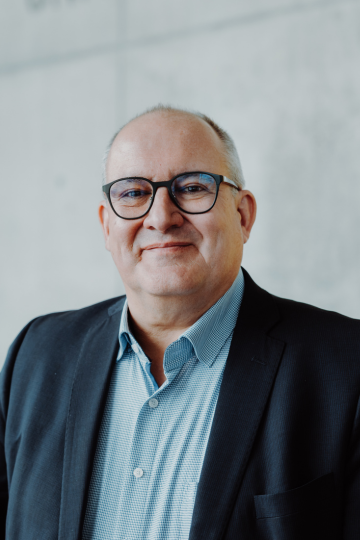
|
Professor Dr Michael Böcher (University of Magdeburg)
Michael Böcher is professor of political science at the department of social sciences at Magdeburg University. His work focuses on sustainability research, e.g. in the areas of climate, environmental, and forestation politics, as well as on knowledge transfer and scientific policy consultation. Additionally, he has been working as a political advisor for institutes inside and outside Germany for more than 15 years. He is a member of the Bioeconomy Council of the German Federal Government and a member of the scientific climate protection council of Sachsen-Anhalt. |

|
Juliana Hilf, M.A./ M.Sc. (University of Magdeburg)
Juliana Hilf studied pedagogics, psychology, and international vocational education. Since 2019 she has worked as a research assistant at Magdeburg University, first at the department of engineering pedagogy, and now at the chair of political science with a focus on sustainable development. She is the coordinator of the university’s sustainability certificate, works at several international projects, as well as teaches and does research on topics related to education concepts for sustainable development. Here, she focuses particularly on competence development and the method of service learning in university level teaching. |
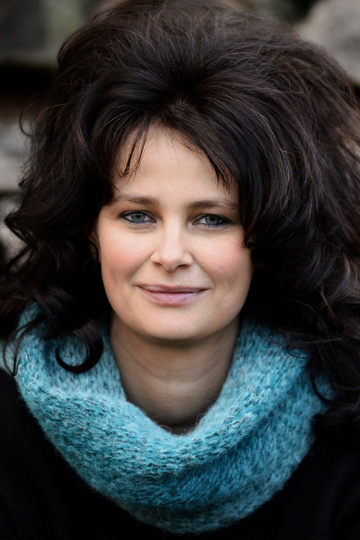
|
Dr Michaela Fink (Justus Liebig University Gießen)
Until the end of 2023, Dr Michaela Fink worked as a researcher at JLU Giessen’s institute of sociology in a three-year research project about “Work force fluctuation in industrialising countries. Textile industry in Ethiopia“ (BMZ, 2020-2022, Head: Professor Dr Reimer Gronemeyer). Before that, she conducted research in Namibia (DFG: vulnerable Kinder) and Malawi (GIZ: Mangelernährung). |
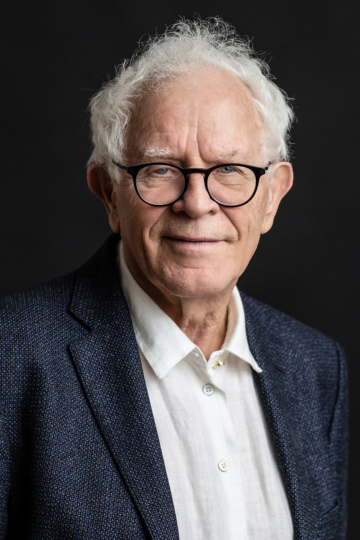
|
Professor Dr Reimer Gronemeyer
(Justus Liebig University Gießen)
Between 2020 and 2022 Professor Dr Reimer Gronemeyer headed a 3-year research project, funded by the Federal Ministry for Economic Cooperation and Development, at JLU’s department of sociology, wherein causes for the massive workforce fluctuation in the Ethiopian textile industry were examined. Currently, he is heading a research project on “Demenz und gesellschaftliche Teilhabe (Dementia and social participation)” (DFG, 2023-2025). |
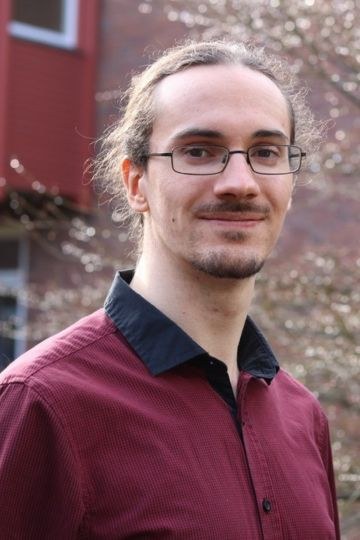
|
Jakob Lundgren, PhD (University of Gothenburg, Sweden)
Jakob Lundgren is a researcher in Theory of Science. His research interests include boundary crossing in science and the relation between science and the broader society. His thesis investigates collaborative judgments of scientific quality in transdisciplinary contexts.
|
|
|
Professor Dr Daniel Mertens (University of Osnabrück)
Daniel Mertens is Professor of International Political Economy at the University of Osnabrück. His research interests include the social dimensions of climate finance in the Climate Finance Society project network, the political economy preconditions of decarbonization, and the European Green Deal. He is, among other things, co-author of a new textbook "Political Economy" (Springer 2023) and a volume on the role of investment banks in European industrial policy (Oxford 2021). |
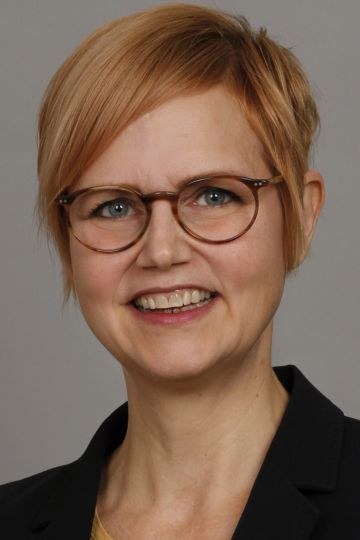
|
Dr Sandra Schwindenhammer (Justus-Liebig University Gießen)
Dr Sandra Schwindenhammer is the deputy coordinator and sub-project leader of the BMBF funded research project “SUSKULT: Entwicklung eines nachhaltigen Kultivierungssystems für Nahrungsmittel resilienter Metropolregionen“ (https://suskult.de/) at JLU Giessen’s department of social sciences. She is the spokesperson for the working group „Umweltpolitik und Global Change“ of the German Political Science Association and her research focuses on topics of sustainability transformation and norms (Sustainable Development Goals), (urban) agricultural systems of the future, as well as sustainability, nutrition and agriculture politics. |
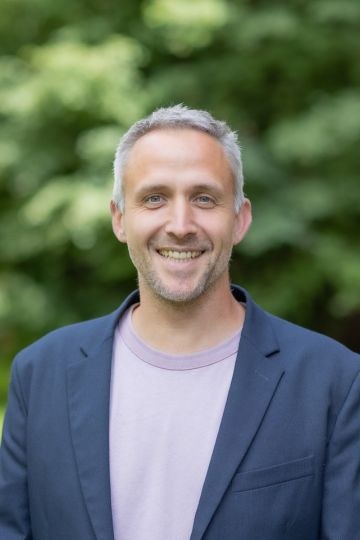
|
Professor Dr Stefan Wahlen (Justus-Liebig University Gießen)
Stefan Wahlen is professor of food sociology at Justus Liebig University Giessen. He studied Food and Household Studies at the University of Bonn and did his PhD at the Chair of Consumer Economics at Helsinki University (Finland). Following this, he worked at the chair for Sociology of Consumption and Households at Wageningen University (NL). His research focuses on sustainable food culture and eating in the sense of doing food, as well as on as well as organisational and socio-political dimensions of sustainable food systems, e.g. the influence of social movements. |
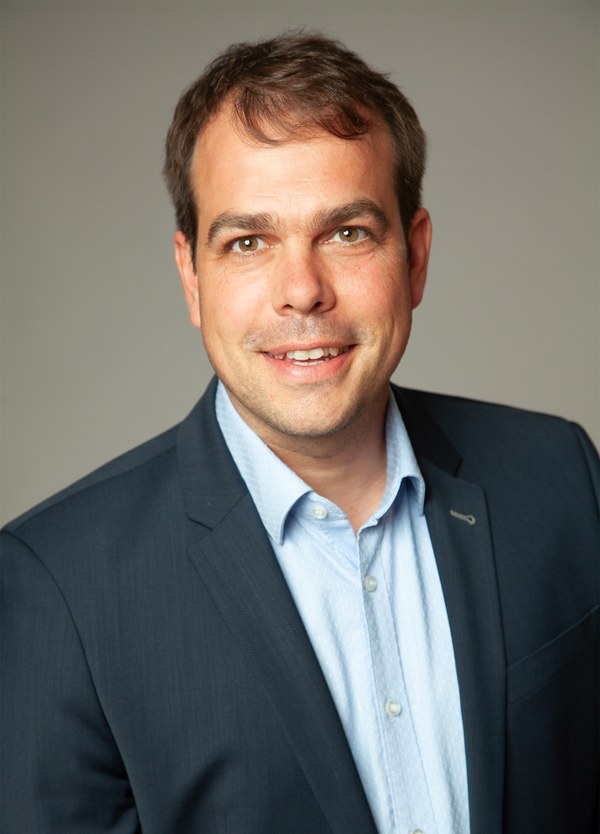
|
Dr Benjamin Bunk (Justus-Liebig University Giessen)
Benjamin Bunk holds a PhD in educational science on the subject of "Formation of the Self and Social Movements" at the interface to sociology and political science (FSU Jena), was a junior fellow at the Max Weber Centre for Advanced Cultural and Social Studies (University of Erfurt) and ventured with a Feodor Lynen research scholarship for research and field stays to Brazil (sociology) and Finland (political science) about urban waste-picker and rural landless communities. He is currently working in the interdisciplinary DFG research group “Human Rights Discourse in Migration Societies” (MeDiMi) as a research assistant at the Chair of in educational science and youth studies (JLU Gießen). Benjamin Bunk is engaged in Thuringia in the On-World-Context since a long time, was active in various education policy committees there and is currently a juror for the UN Decade "Education for Sustainable Development" of the German UNESCO Commission. |
If you have any questions, please feel free to contact:
Mia Feline Wagenbach
Phone: +49 641 99 21374
Email: info@ggs.uni-giessen.de
Dennis Klein
Phone: +49 641 99 21373
Email: info@ggs.uni-giessen.de

